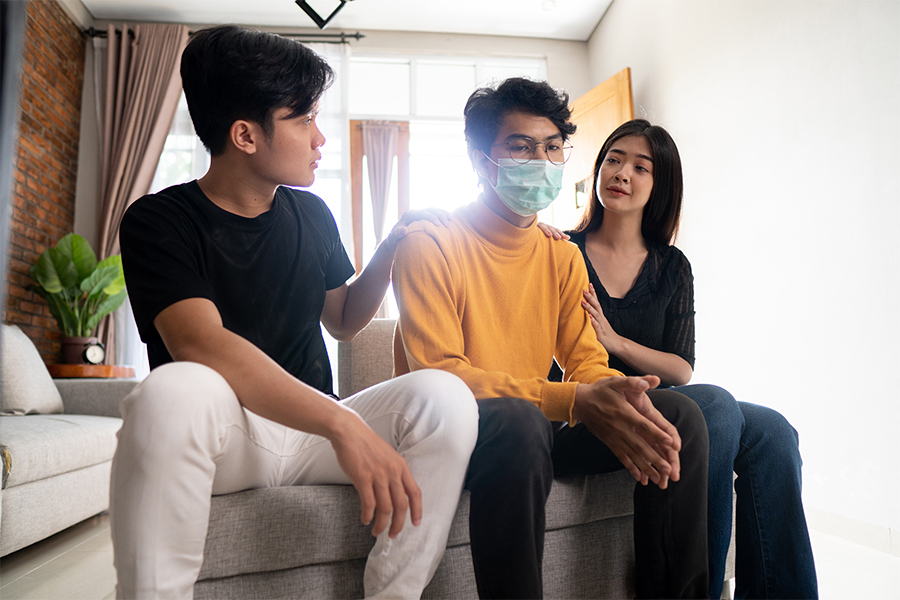If you or someone you love is struggling with thoughts of suicide, contact the National Suicide Prevention Lifeline, available 24/7 at 1-800-273-TALK (8255).
By this time next year in the United States, there will be an emergency number dedicated solely to suicide-related emergencies. The number 9-8-8 will be the 9-1-1 for help in a suicide-related crisis thanks to a vote by the Federal Communications Commission (FCC).
The month of September is Suicide Prevention Awareness Month and VEBA Resource Center’s (VRC) Mental Behavioral Health Director, Carletta Vicain says suicide awareness needs to be part of our daily awareness, especially during this worldwide pandemic.
“It’s important to remember that, right now, a lot of things are heightened for people, including physical and emotional health. COVID has affected our three major buckets: medical issues, financial issues, and relationship issues. And when you get to the point when those areas are in significant deficit, suicide may seem like a solution.”
Reports in 2020 showed that the pandemic’s mental health effects landed heaviest on minorities, caregivers, essential workers and young adults. Carletta says Hispanic and Black communities may have been harder hit because of a lack of access to care coupled with working front-line jobs with few options.
“Some communities of color have lower socio-economic dynamics as well. So when you put all those factors together, some might feel trapped. We don’t want to get to a place where suicide becomes a coping mechanism for pain. That’s why reaching out and getting support from professionals is important. And there are free and low-cost medical resources available.”
In 2021, it is adolescent girls who are suffering the most due to the pandemic. Average weekly visits to the emergency department for suspected suicide attempts were 50.6% higher from February 2021 to March 2021 than the same period the year before. Carletta says it’s important to understand and watch for warning signs.
“Ask for help or offer help before mental health concerns progress to a suicide. For example, you know that when you get a tickle in your nose, a cold is probably on the way. The same applies to mental health. Acknowledging that we don’t feel well mentally means noticing something isn’t right and asking for help or finding help for someone you love, early on.”
At the VEBA Resource Center (VRC), we are dedicated to improving access to mental health assistance. We take a holistic approach to health care that offers supplemental practices such as yoga, therapy, and healthy eating to help our members build a well-rounded, more grounded way of living. Mental health care tops our list.
“I really encourage everyone to keep tabs on their own health as well as checking in on neighbors who may be struggling. Let’s watch out for each other.”
More Information:
Get Immediate Help in a Crisis
Call 911 if you or someone you know is in immediate danger or go to the nearest emergency room.
National Suicide Prevention Lifeline
Call 1-800-273-TALK (8255); En español 1-888-628-9454
Lifeline Chat is a service of the National Suicide Prevention Lifeline, connecting individuals with counselors for emotional support and other services via web chat. Lifeline Chat is available 24/7 across the U.S.
Crisis Text Line
Text “HOME” to 741741
The Crisis Text hotline is available 24 hours a day, seven days a week throughout the U.S. The Crisis Text Line serves anyone, in any type of crisis, connecting them with a crisis counselor who can provide support and information.
Additional Mental Health & Crisis Resources.
Explore these VRC resources that may help ease stress and suffering during this time:
- Tips for coping with COVID-19 and Grief
- Watch How to Deal With Change with Carletta Vicain
- Watch more videos on mental health and stress in our YouTube playlist.









